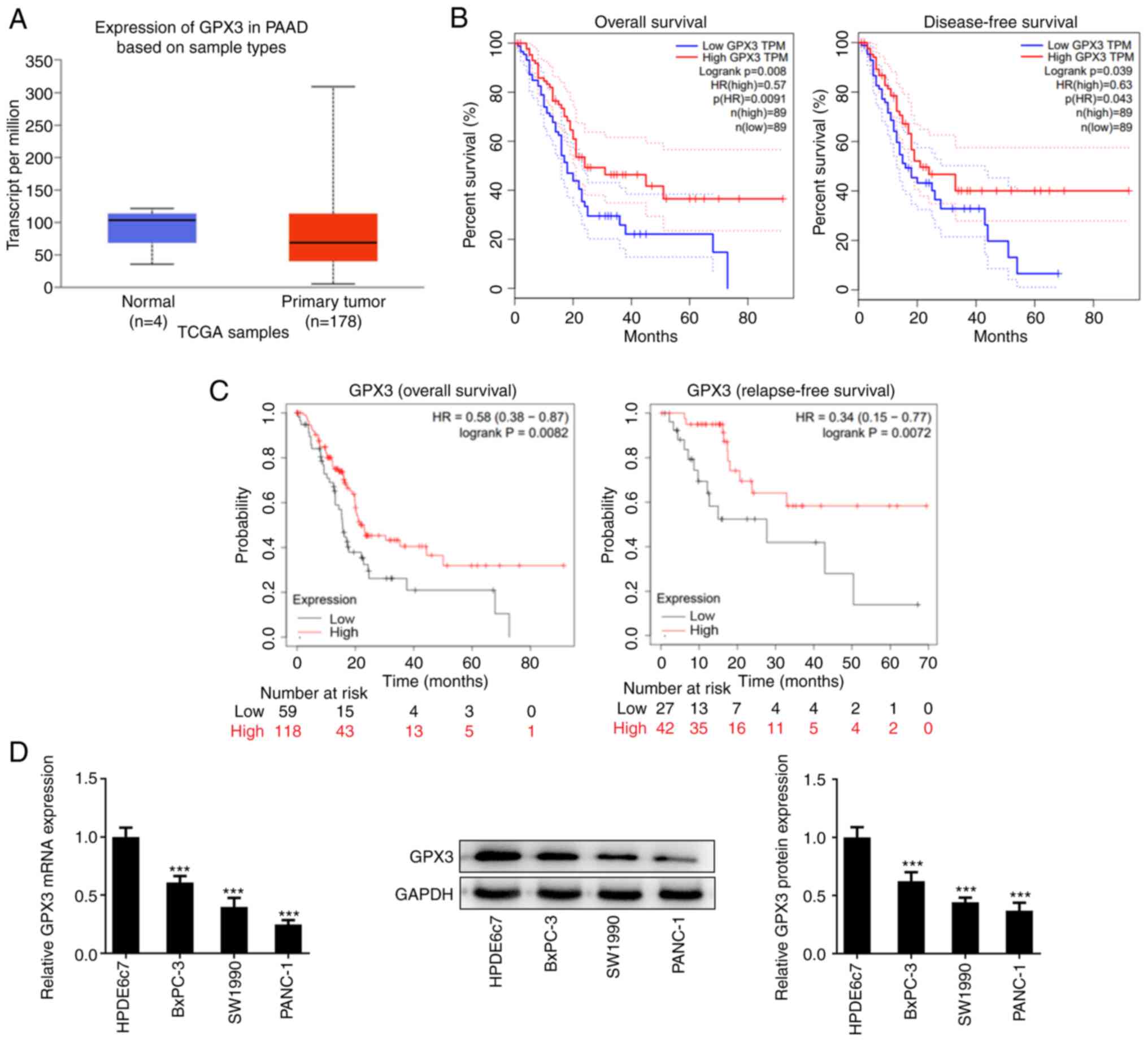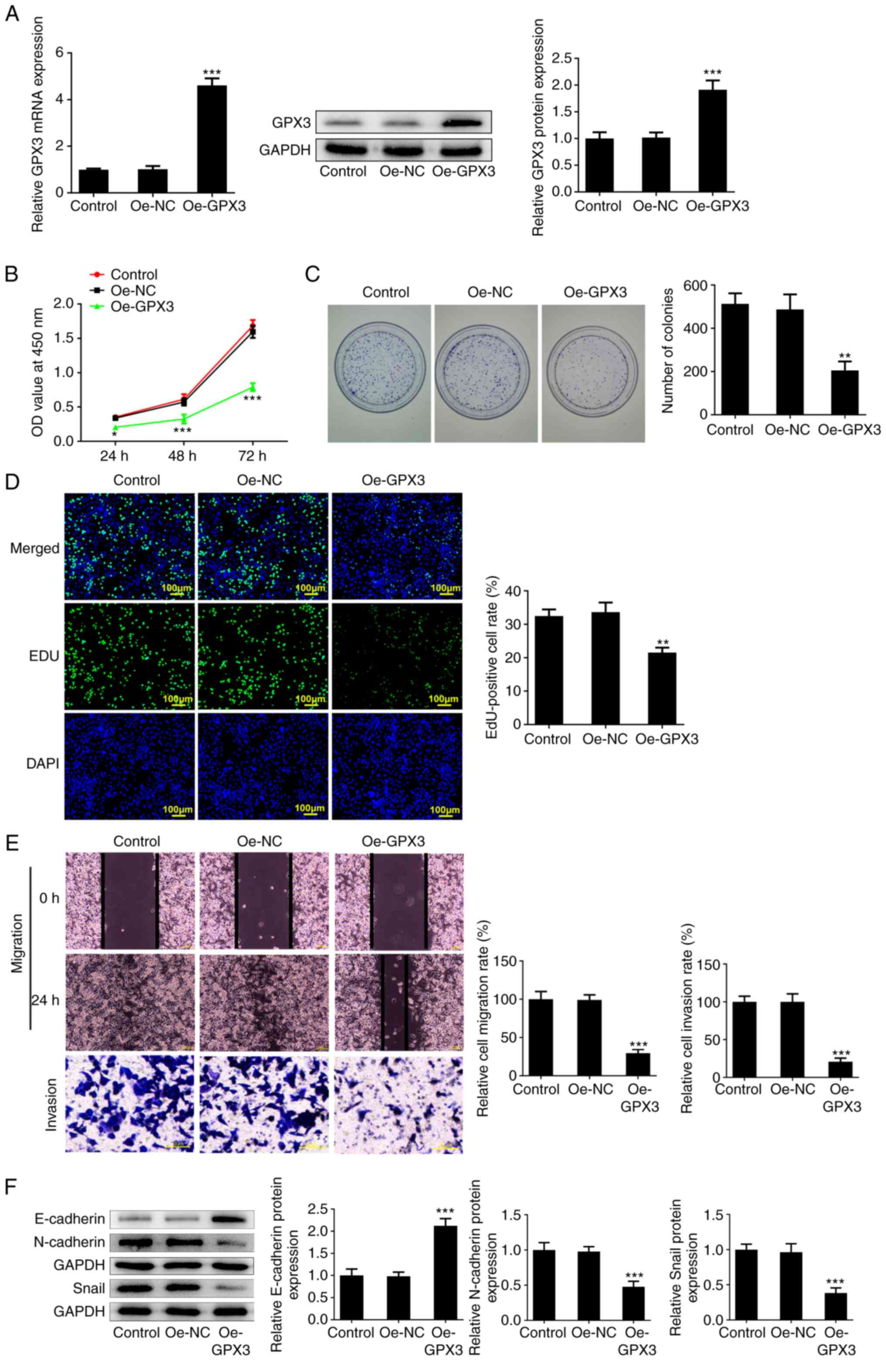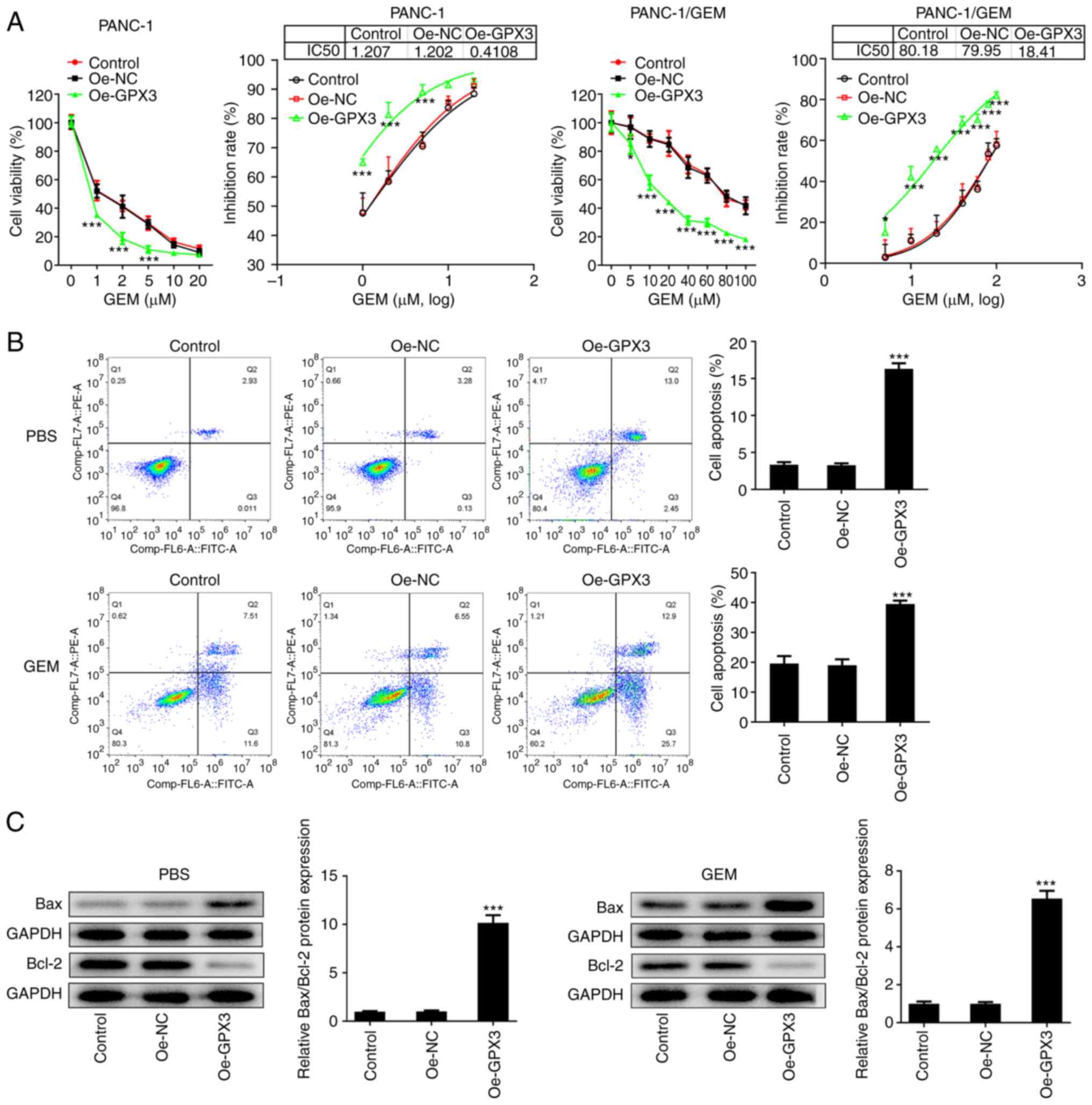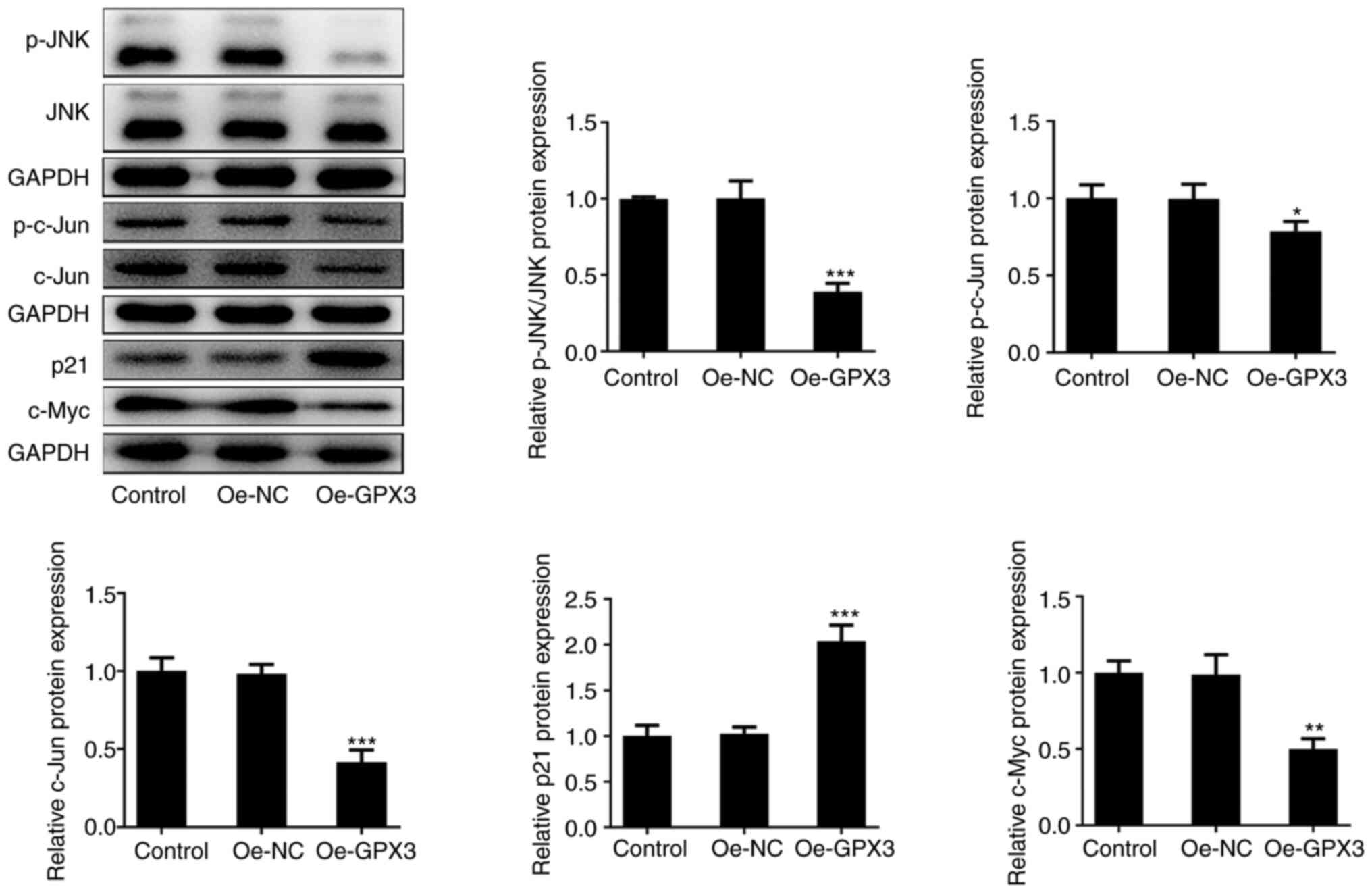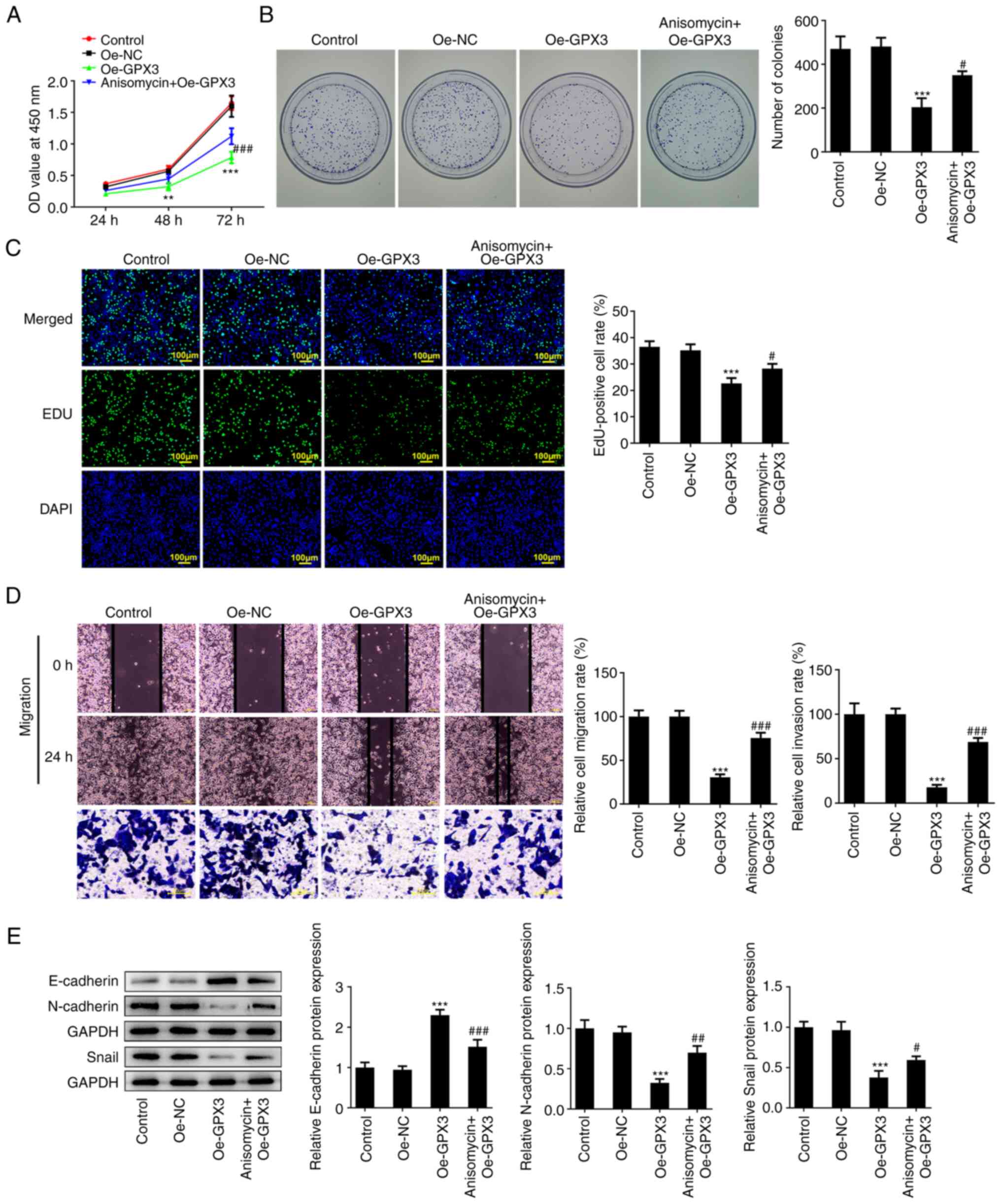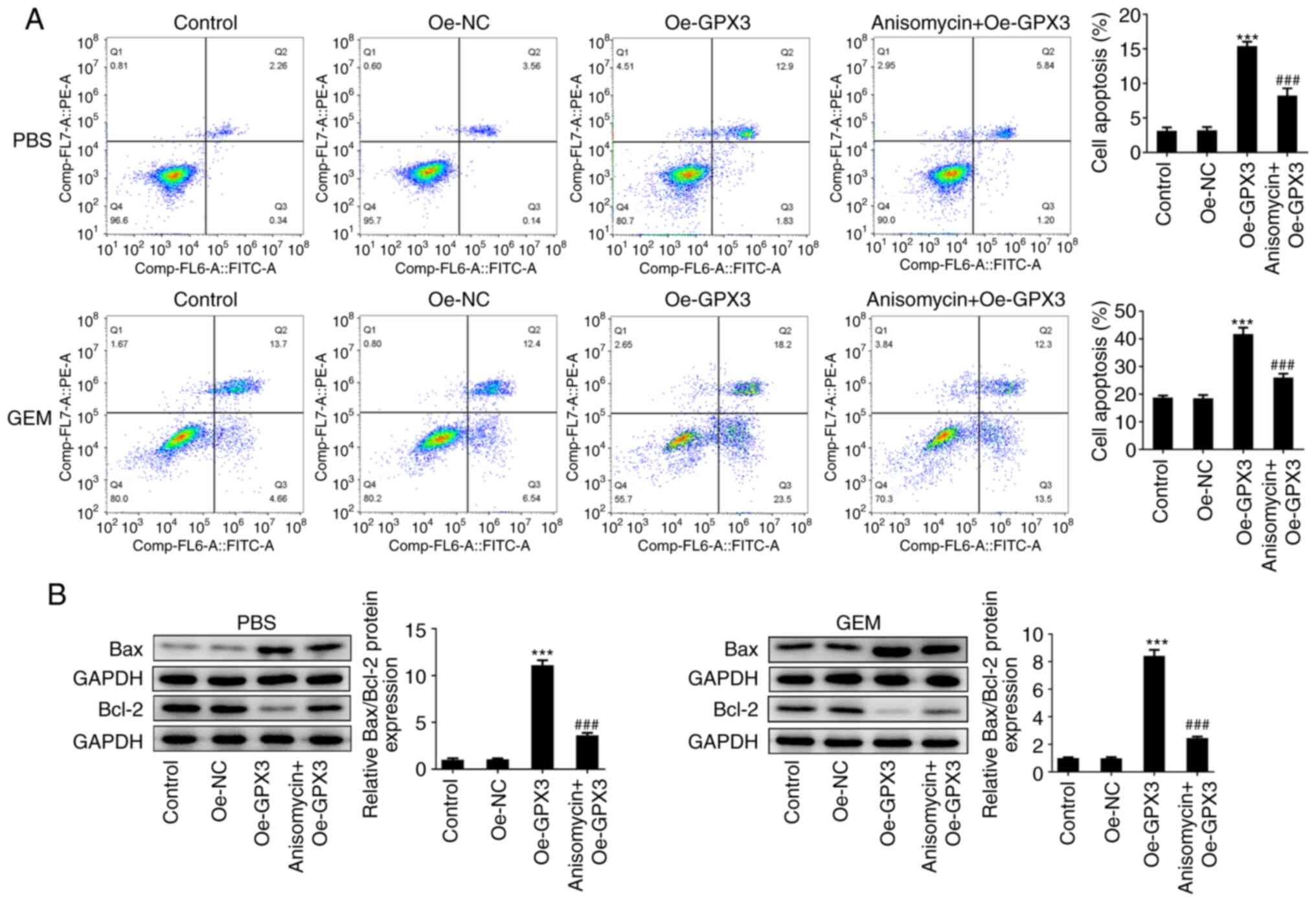|
1
|
Lippi G and Mattiuzzi C: The global burden
of pancreatic cancer. Arch Med Sci. 16:820–824. 2020.PubMed/NCBI View Article : Google Scholar
|
|
2
|
Bengtsson A, Andersson R and Ansari D: The
actual 5-year survivors of pancreatic ductal adenocarcinoma based
on real-world data. Sci Rep. 10(16425)2020.PubMed/NCBI View Article : Google Scholar
|
|
3
|
Doleh Y, Lal LS, Blauer-Petersen C, Antico
G and Pishvaian M: Treatment patterns and outcomes in pancreatic
cancer: Retrospective claims analysis. Cancer Med. 9:3463–3476.
2020.PubMed/NCBI View Article : Google Scholar
|
|
4
|
Kolbeinsson HM, Chandana S, Wright GP and
Chung M: Pancreatic cancer: A review of current treatment and novel
therapies. J Invest Surg. 36(2129884)2023.PubMed/NCBI View Article : Google Scholar
|
|
5
|
Dauer P, Nomura A, Saluja A and Banerjee
S: Microenvironment in determining chemo-resistance in pancreatic
cancer: Neighborhood matters. Pancreatology. 17:7–12.
2017.PubMed/NCBI View Article : Google Scholar
|
|
6
|
Yang Z, Wang S, Yin K, Zhang Q and Li S:
MiR-1696/GPx3 axis is involved in oxidative stress mediated
neutrophil extracellular traps inhibition in chicken neutrophils. J
Cell Physiol. 236:3688–3699. 2021.PubMed/NCBI View Article : Google Scholar
|
|
7
|
Takahashi K, Avissar N, Whitin J and Cohen
H: Purification and characterization of human plasma glutathione
peroxidase: A selenoglycoprotein distinct from the known cellular
enzyme. Arch Biochem Biophys. 256:677–686. 1987.PubMed/NCBI View Article : Google Scholar
|
|
8
|
Chang C, Worley BL, Phaeton R and Hempel
N: Extracellular glutathione peroxidase GPx3 and its role in
cancer. Cancers (Basel). 12(2197)2020.PubMed/NCBI View Article : Google Scholar
|
|
9
|
Nirgude S and Choudhary B: Insights into
the role of GPX3, a highly efficient plasma antioxidant, in cancer.
Biochem Pharmacol. 184(114365)2021.PubMed/NCBI View Article : Google Scholar
|
|
10
|
Miess H, Dankworth B, Gouw AM, Rosenfeldt
M, Schmitz W, Jiang M, Saunders B, Howell M, Downward J, Felsher
DW, et al: The glutathione redox system is essential to prevent
ferroptosis caused by impaired lipid metabolism in clear cell renal
cell carcinoma. Oncogene. 37:5435–5450. 2018.PubMed/NCBI View Article : Google Scholar
|
|
11
|
Wei J, Xie Q, Liu X, Wan C, Wu W, Fang K,
Yao Y, Cheng P, Deng D and Liu Z: Identification the prognostic
value of glutathione peroxidases expression levels in acute myeloid
leukemia. Ann Transl Med. 8(678)2020.PubMed/NCBI View Article : Google Scholar
|
|
12
|
Liu Q, Bai W, Huang F, Tang J and Lin X:
Downregulation of microRNA-196a inhibits stem cell self-renewal
ability and stemness in non-small-cell lung cancer through
upregulating GPX3 expression. Int J Biochem Cell Biol.
115(105571)2019.PubMed/NCBI View Article : Google Scholar
|
|
13
|
Worley BL, Kim YS, Mardini J, Zaman R,
Leon KE, Vallur PG, Nduwumwami A, Warrick JI, Timmins PF, Kesterson
JP, et al: GPx3 supports ovarian cancer progression by manipulating
the extracellular redox environment. Redox Biol.
25(101051)2019.PubMed/NCBI View Article : Google Scholar
|
|
14
|
Cai M, Sikong Y, Wang Q, Zhu S, Pang F and
Cui X: Gpx3 prevents migration and invasion in gastric cancer by
targeting NFкB/Wnt5a/JNK signaling. Int J Clin Exp Pathol.
12:1194–1203. 2019.PubMed/NCBI
|
|
15
|
Hu Q, Chen J, Yang W, Xu M, Zhou J, Tan J
and Huang T: GPX3 expression was down-regulated but positively
correlated with poor outcome in human cancers. Front Oncol.
13(990551)2023.PubMed/NCBI View Article : Google Scholar
|
|
16
|
Chandrashekar DS, Karthikeyan SK, Korla
PK, Patel H, Shovon AR, Athar M, Netto GJ, Qin ZS, Kumar S, Manne
U, et al: UALCAN: An update to the integrated cancer data analysis
platform. Neoplasia. 25:18–27. 2022.PubMed/NCBI View Article : Google Scholar
|
|
17
|
Li C, Tang Z, Zhang W, Ye Z and Liu F:
GEPIA2021: Integrating multiple deconvolution-based analysis into
GEPIA. Nucleic Acids Res. 49 (W1):W242–W246. 2021.PubMed/NCBI View Article : Google Scholar
|
|
18
|
Győrffy B: Discovery and ranking of the
most robust prognostic biomarkers in serous ovarian cancer.
Geroscience. 45:1889–1898. 2023.PubMed/NCBI View Article : Google Scholar
|
|
19
|
Livak KJ and Schmittgen TD: Analysis of
relative gene expression data using real-time quantitative PCR and
the 2(-Delta Delta C(T)) method. Methods. 25:402–408.
2001.PubMed/NCBI View Article : Google Scholar
|
|
20
|
Zeng S, Pöttler M, Lan B, Grützmann R,
Pilarsky C and Yang H: Chemoresistance in pancreatic cancer. Int J
Mol Sci. 20(4504)2019.PubMed/NCBI View Article : Google Scholar
|
|
21
|
Song Y, Zou L, Li J, Shen ZP, Cai YL and
Wu XD: LncRNA SNHG8 promotes the development and chemo-resistance
of pancreatic adenocarcinoma. Eur Rev Med Pharmacol Sci.
22:8161–8168. 2018.PubMed/NCBI View Article : Google Scholar
|
|
22
|
Zhou Y, Wang K, Zhou Y, Li T, Yang M, Wang
R, Chen Y, Cao M and Hu R: HEATR1 deficiency promotes pancreatic
cancer proliferation and gemcitabine resistance by up-regulating
Nrf2 signaling. Redox Biol. 29(101390)2020.PubMed/NCBI View Article : Google Scholar
|
|
23
|
Xu P, Yao J, He J, Zhao L, Wang X, Li Z
and Qian J: CIP2A down regulation enhances the sensitivity of
pancreatic cancer cells to gemcitabine. Oncotarget. 7:14831–14840.
2016.PubMed/NCBI View Article : Google Scholar
|
|
24
|
Wagner EF and Nebreda AR: Signal
integration by JNK and p38 MAPK pathways in cancer development. Nat
Rev Cancer. 9:537–549. 2009.PubMed/NCBI View
Article : Google Scholar
|
|
25
|
Kawasaki S, Ohtsuka H, Sato Y, Douchi D,
Sato M, Ariake K, Masuda K, Fukase K, Mizuma M, Nakagawa K, et al:
Silencing of LRRFIP1 enhances the sensitivity of gemcitabine in
pancreatic cancer cells by activating JNK/c-Jun signaling.
Pancreatology. 21:771–778. 2021.PubMed/NCBI View Article : Google Scholar
|
|
26
|
Shi J, Yang X, Kang Q, Lu J, Denzinger M,
Kornmann M and Traub B: JNK inhibitor IX restrains pancreatic
cancer through p53 and p21. Front Oncol. 12(1006131)2022.PubMed/NCBI View Article : Google Scholar
|
|
27
|
Cai J, Du S, Wang H, Xin B, Wang J, Shen
W, Wei W, Guo Z and Shen X: Tenascin-C induces migration and
invasion through JNK/c-Jun signalling in pancreatic cancer.
Oncotarget. 8:74406–74422. 2017.PubMed/NCBI View Article : Google Scholar
|
|
28
|
Meggiato T, Calabrese F, De Cesare CM,
Baliello E, Valente M and Del Favero G: C-JUN and CPP32 (CASPASE 3)
in human pancreatic cancer: Relation to cell proliferation and
death. Pancreas. 26:65–70. 2003.PubMed/NCBI View Article : Google Scholar
|
|
29
|
Kalli M, Li R, Mills GB, Stylianopoulos T
and Zervantonakis IK: Mechanical stress signaling in pancreatic
cancer cells triggers p38 MAPK- and JNK-dependent cytoskeleton
remodeling and promotes cell migration via Rac1/cdc42/Myosin II.
Mol Cancer Res. 20:485–497. 2022.PubMed/NCBI View Article : Google Scholar
|
|
30
|
Ichimaru Y, Sano M, Kajiwara I, Tobe T,
Yoshioka H, Hayashi K, Ijichi H and Miyairi S: Indirubin 3'-oxime
inhibits migration, invasion, and metastasis invivo in mice bearing
spontaneously occurring pancreatic cancer via blocking the RAF/ERK,
AKT, and SAPK/JNK pathways. Transl Oncol. 12:1574–1582.
2019.PubMed/NCBI View Article : Google Scholar
|
|
31
|
Liu M, Zhang Y, Yang J, Cui X, Zhou Z,
Zhan H, Ding K, Tian X, Yang Z, Fung KA, et al: ZIP4 increases
expression of transcription factor ZEB1 to promote integrin α3β1
signaling and inhibit expression of the gemcitabine transporter
ENT1 in pancreatic cancer cells. Gastroenterology. 158:679–692.e1.
2020.PubMed/NCBI View Article : Google Scholar
|
|
32
|
Takahashi R, Hirata Y, Sakitani K, Nakata
W, Kinoshita H, Hayakawa Y, Nakagawa H, Sakamoto K, Hikiba Y,
Ijichi H, et al: Therapeutic effect of c-Jun N-terminal kinase
inhibition on pancreatic cancer. Cancer Sci. 104:337–344.
2013.PubMed/NCBI View Article : Google Scholar
|















